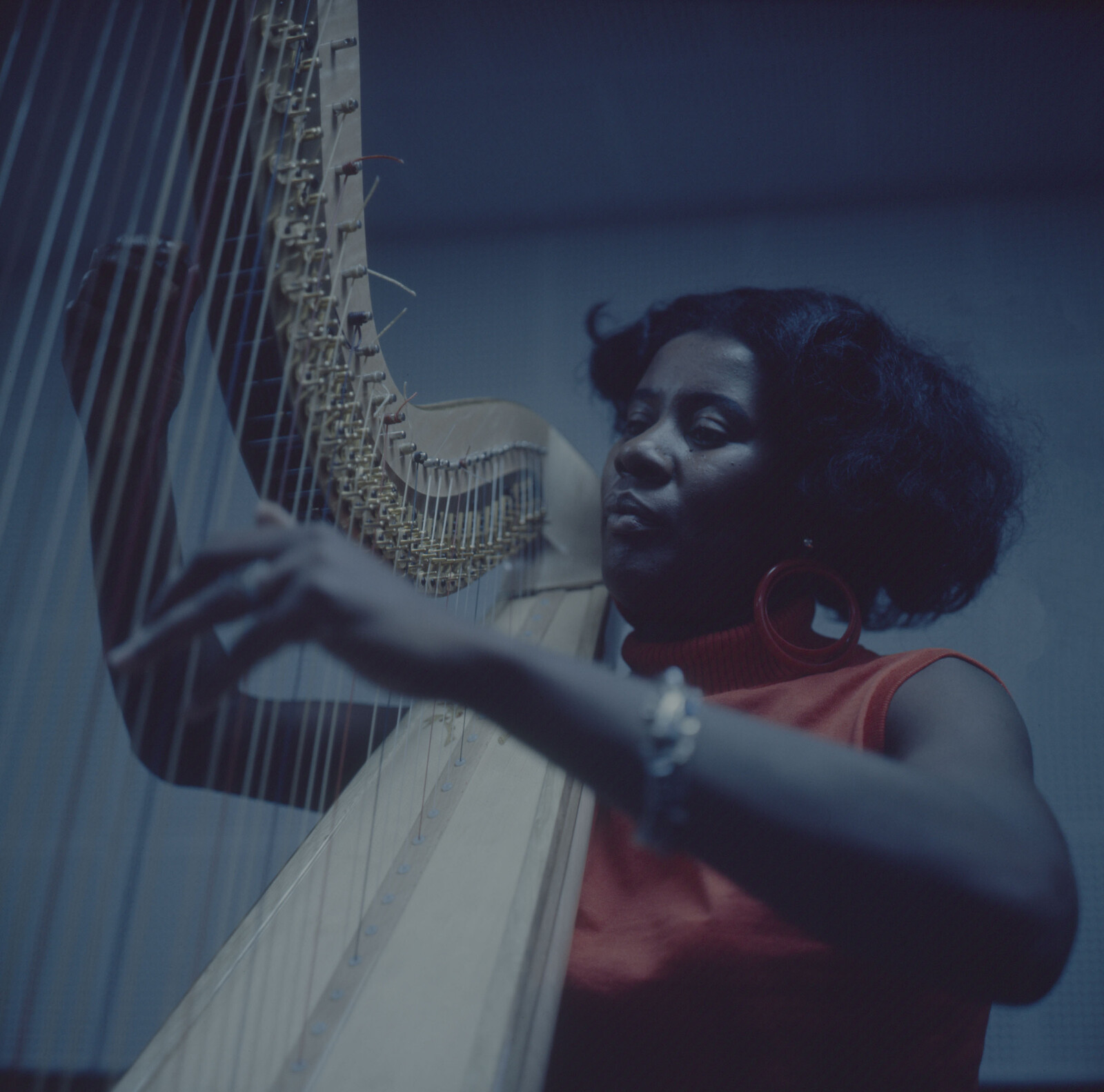February 9–May 4, 2025
10899 Wilshire Boulevard
Los Angeles, CA 90024
United States
The Hammer Museum at UCLA is thrilled to present Alice Coltrane, Monument Eternal, the first museum exhibition inspired by the life and legacy of jazz musician and devotional leader, Alice Coltrane (1937–2007). Curated by Erin Christovale, the exhibition features archival ephemera from the Coltrane’s archive alongside works by 19 American artists, including Steven Ellison (aka Flying Lotus), Star Feliz, Rashid Johnson, Jasper Marsalis, Cauleen Smith, Martine Syms, and more. Works featured in the show range from sculpture, painting, and photography to installation and performance, and many works were created especially for this exhibition. They are presented alongside ephemera from Coltrane’s personal archive—much of which has never before been on view—including handwritten correspondence, unreleased audio recordings, and rarely seen video footage. Alice Coltrane, Monument Eternal will be on view at the Hammer from February 9 to May 4, 2025, and will also feature a robust slate of related programs and performances with members of the Coltrane family, as well as exclusive collaborations with the Criterion Channel, NTS radio, and Dover Street Market.
The exhibition’s title takes its name from Coltrane’s 1977 book Monument Eternal, an insightful reflection on her spiritual beliefs and ever-evolving, genre-bending music. This groundbreaking and multisensorial exhibition calls forward Alice’s autobiography and brings together a collective of contemporary Black American artists whose lives and practices were impacted and influenced by Coltrane. The exhibition is divided into three themes that honor and highlight the expansive nature of
Coltrane’s creativity and artistry: Sonic Innovation, Spiritual Transcendence, and Architectural Intimacy.
Sonic innovation
Emanating from Coltrane’s undeniable musical virtuosity, this section is comprised of ephemera, paintings, and sculptures that spotlight the many musical facets of the artist and her inclination to a constant experimentation with instruments and sound.
Selected images from Coltrane’s archive substantially shape this section, displaying never-seen-before images of Coltrane throughout her creative journey; contact sheets by photographer Chuck Stewart depict Coltrane’s initial experimentation with the harp and outtakes from photo sessions for her landmark album covers.
Artist Jamal Cyrus, whose practice relies on the lexicon of collage and assemblage to capture Black American histories and political movements, features an upturned silver-plated saxophone perched on a steel beam flaked into a neat square foot of railroad track rubble. Jasper Marsalis offers his serial Event paintings, featuring vividly abstracted microphones, spotlights, and singing lips highlighting the energetic interplay between performer and audience.
Spiritual transcendence
After her husband John Coltrane’s passing in 1967, Alice experienced a period of mourning, self-exploration, and spiritual enlightenment. This moment of discovery, which led her to become an Swamini (a Hindu concept that refers to a female spiritual leader), Alice also birthed a new mode of transcendental music and sound that broke from the standard jazz tradition and proved to be genre defying.
Nicole Miller, an artist that primarily works with laser, video, and installations, creates work that transmutes light and sound to reconsider personal histories and prompt an understanding of one’s own body. Miller’s piece in the exhibition consists of a laser-light installation created with analog sound, which is then processed through a synthesizer. The soundwaves then interact with the mirror inside the laser, emanating light. Drawn from Coltrane’s Vedic astrology chart, Miller provides a glimpse into the intimate yet enigmatic aspects of Coltrane, honoring her gifts and illuminating her spiritual journey.
In his film Isis and Osiris (2024), filmmaker Ephraim Asili reimagines Coltrane’s initial encounters with the harp, a gift from her husband that was not delivered to her until shortly after his passing. Starring contemporary harpist Brandee Younger and Coltrane’s original harp which was recently restored, this piece serves as a meditation on Coltrane’s connection with the instrument, both as a music-making tool and as a link to her late husband.
Architectural intimacy
The archival ephemera and contemporary artworks that comprise this section are deeply rooted in Coltrane’s importance to the design of physical spaces, color theory, and sacred geometry. Included in the exhibition are several photographs depicting the Coltranes’ home in Dix Hills, New York, and sketches from the early designs of the Sai Anantam Ashram in Agoura Hills, California, can be seen throughout the gallery walls, emphasizing Coltrane’s attention to form and structures.
Los Angeles artist Martine Syms has created a new suite of photographs that capture the original furniture that was used inside of the Sai Anantam Ashram. These photographs question and honor the function of the now-defunct space and the spiritual residue that individual objects retain.
GeoVanna Gonzalez, whose installations are often interventions between public and private spaces, has created a functioning stage that will be activated every Sunday during the run of the exhibition through performances by different musicians. The stage features various elements and materials that draw on Coltrane´s interior design and color choices, such as the stained glass and prayer rugs in the Dix Hills home.




